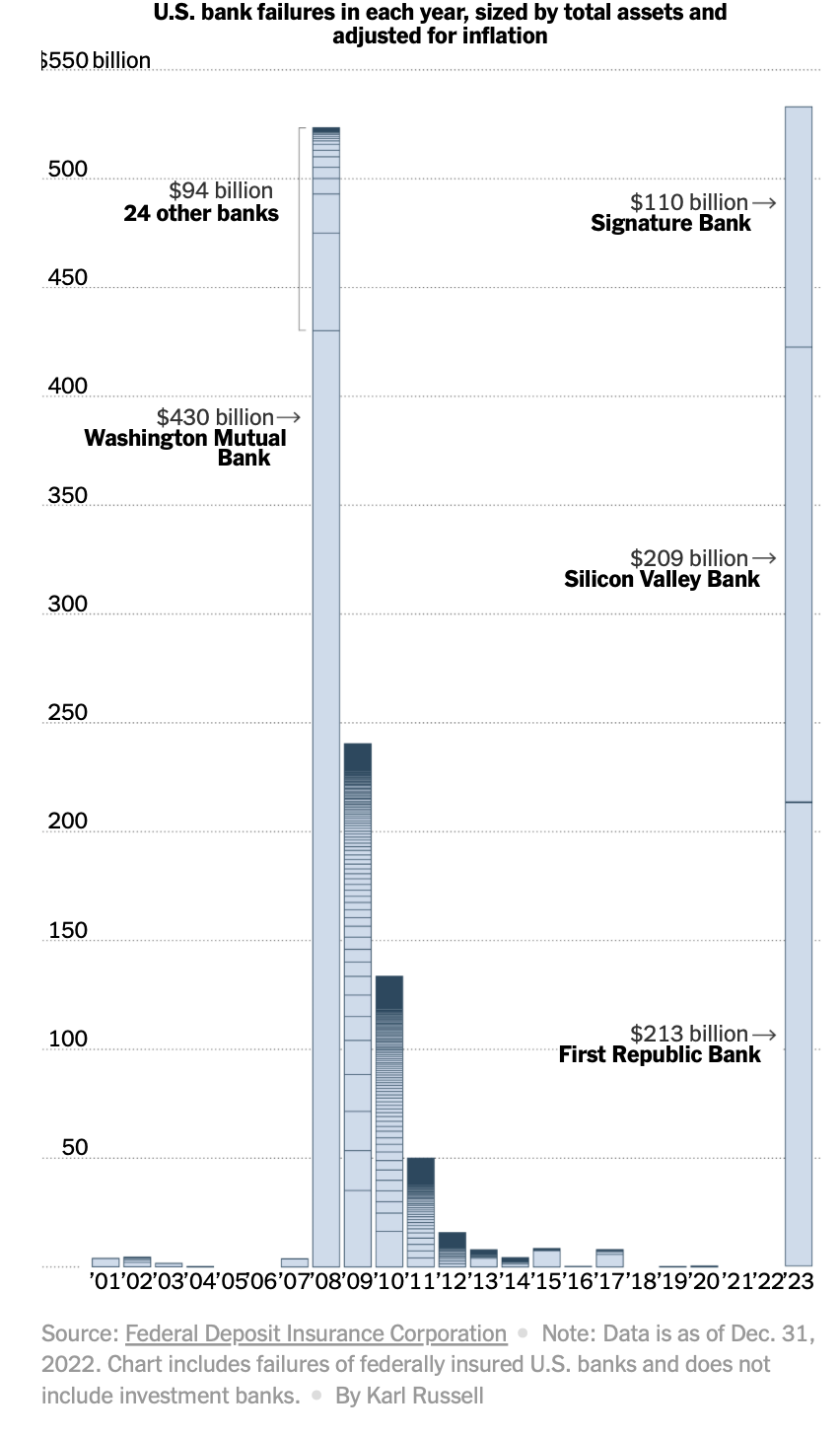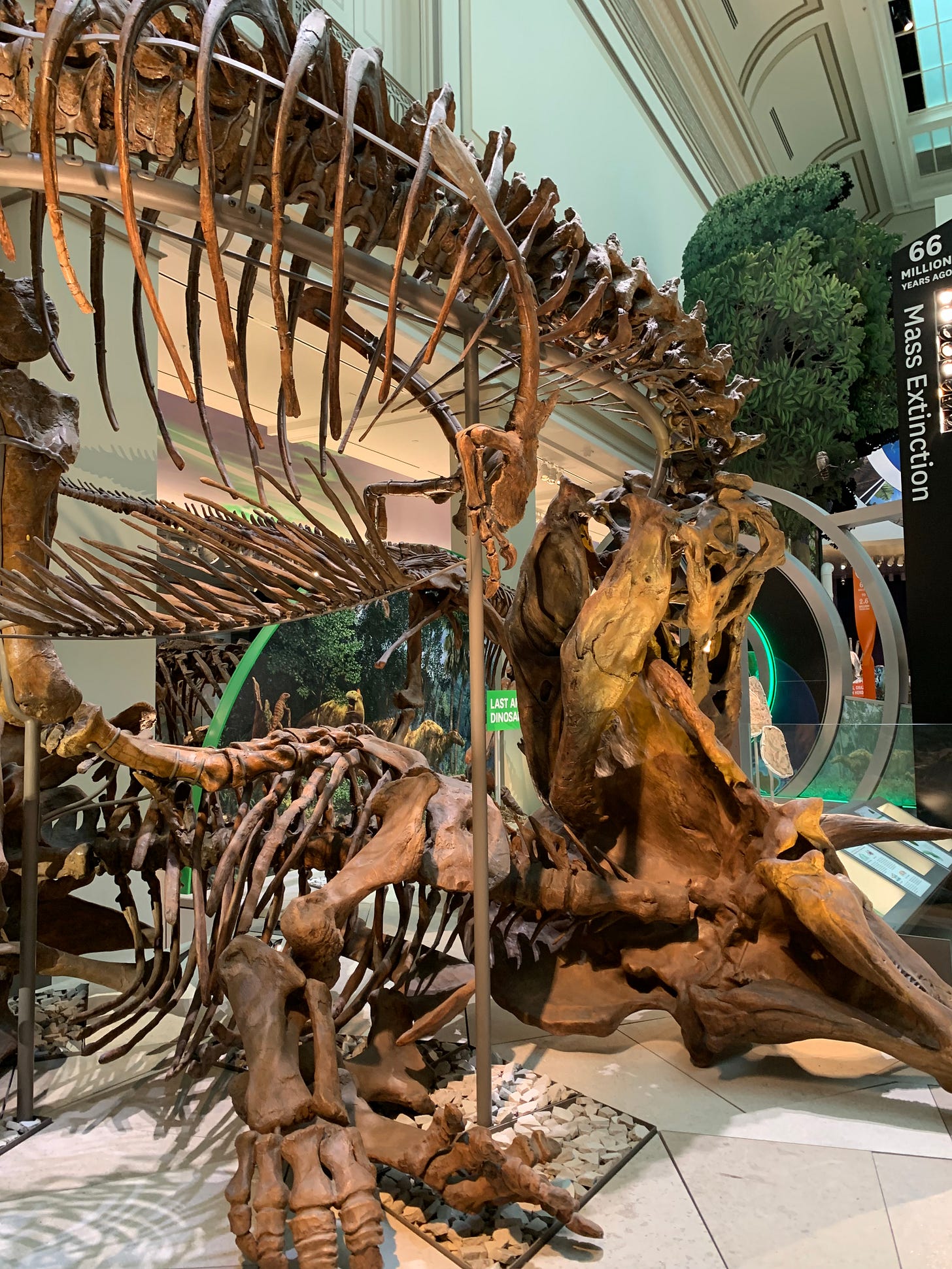TL(PM) DIGEST: The bank failures just keep on coming
Plus Russia air strikes against Ukraine, Americans say the news media foments division, and Beijing balks at a new hotline

1. Another bank collapse averted—but dangers remain unaddressed
What happened? The Wall Street Journal reports that First Republic Bank was seized by the federal government over the weekend and sold to JPMorgan to avert another potentially catastrophic bank failure akin to Silicon Valley Bank’s collapse.
Why does it matter? JPMorgan is assuming all the failed bank’s deposits and taking most of its assets, allowing the First Republic branches to reopen as JPMorgan branches this week; the Federal Deposit Insurance Corporation agreed to use $13 billion from its insurance fund to facilitate the sale and will provide another $50 billion in financing. As the New York Times reports, the three major banking collapses so far this year are now bigger in monetary terms than the 25 bank failures of the 2008 financial crash.
TLP’s take: It’s clear from this episode and the other two bank failures earlier this year that taxpayers remain on the hook for the bad business decisions of too many commercial banks. The American public deserves to know how many other banks may be in this position and what’s being done to prevent similar financial meltdowns in the future.
2. New wave of Russian air strikes hit Ukraine
What happened? Ukraine intercepted 15 of 18 Russian missiles launched at civilian targets across the country over the weekend, part of a seeming Russian strategy to deplete Ukrainian air defenses ahead of Kyiv’s anticipated summer counteroffensive. Russian air strikes have not held back Ukraine’s defense industry, the Wall Street Journal reports, with main arms maker Ukroboronprom and others dispersing production across the country and setting up shop in neighboring countries.
Why does it matter? Russia’s air campaign has failed to either terrorize Ukraine into submission or destroy the country’s arms industry, but Ukraine’s air defense remain stretched thin despite the increased provision of new anti-aircraft systems by the United States and its NATO allies. And Ukraine’s arms industry keeps its still-sizable Soviet-era equipment fleet armed and running as the country’s military slowly transitions to NATO-standard weapons.
TLP’s take: Deliveries of new U.S. and NATO air defense systems like the Patriot missile can’t come fast enough for Ukraine—and neither the United States nor its allies should delay when it comes to providing Ukraine with new weapons, whether fighter jets or long-range missiles. The sooner Ukraine receives these weapons, the sooner the war can be brought to an end acceptable to both the United States and Ukraine.
3. Americans believe the news media is driving increased political division
What happened? A new survey from AP/NORC/RFK Human Rights Center finds that three quarters of American adults believe the news media increases political divisions, compared to only six percent who believe the media helps to decrease these divisions.
Why does it matter? Six in 10 independents, 7 in 10 Democrats, and 8 in 10 Republicans agree that the news media does more to increase political divisions in the United States rather than decreasing them or having no impact. Large majorities of Americans say that it’s a major problem that news stories mostly create conflict rather than address it (71 percent) and that media outlets spread conspiracy theories and unsubstantiated rumors (69 percent).
TLP’s take: Honest and trustworthy news reports, along with some basic level of trust between citizens, remain vital parts of a properly functioning democracy. But as these survey results suggest, trust between citizens and in major news media outlets can only be rebuilt if everyone involved agrees to four conditions:
Report and accept basic facts;
Be honest with people;
Acknowledge personal mistakes and correct institutional errors;
Stop freaking out over every minor political difference and focus more on fixing common challenges.
4. Beijing won’t take America’s calls
What happened? Beijing is resisting American entreaties to establish a more reliable crisis hotline between the two countries, the Wall Street Journal reports. Chinese government officials apparently see these attempts to create better communications between the two countries as granting legitimacy to U.S. military operations in international waters and airspace near Chinese territory.
Why does it matter? Repeated calls for the United States and China to talk to each other have foundered on the reality that the powers that be in Beijing have no apparent interest in dialogue of any sort with Washington. While hotlines already exist, moreover, Chinese officials frequently refuse to respond to American attempts to open communications—possibly because those officials can’t give a response without approval from the top in Beijing.
TLP’s take: It’s good that the Biden administration is trying to open up new, more reliable channels to communicate with Beijing in the event of a crisis—belying the prevalent DC narrative that the United States refuses to talk with the Chinese government. But as always, diplomacy requires both sides to work—and Beijing clearly doesn’t want to participate right now.
Just one more thing…
Dino diagnosis: a Smithsonian paleontologist details the ailments—severe injuries, likely infections, and possible arthritis—that can be found among the dinosaur fossils at the National Museum of Natural History in Washington.







